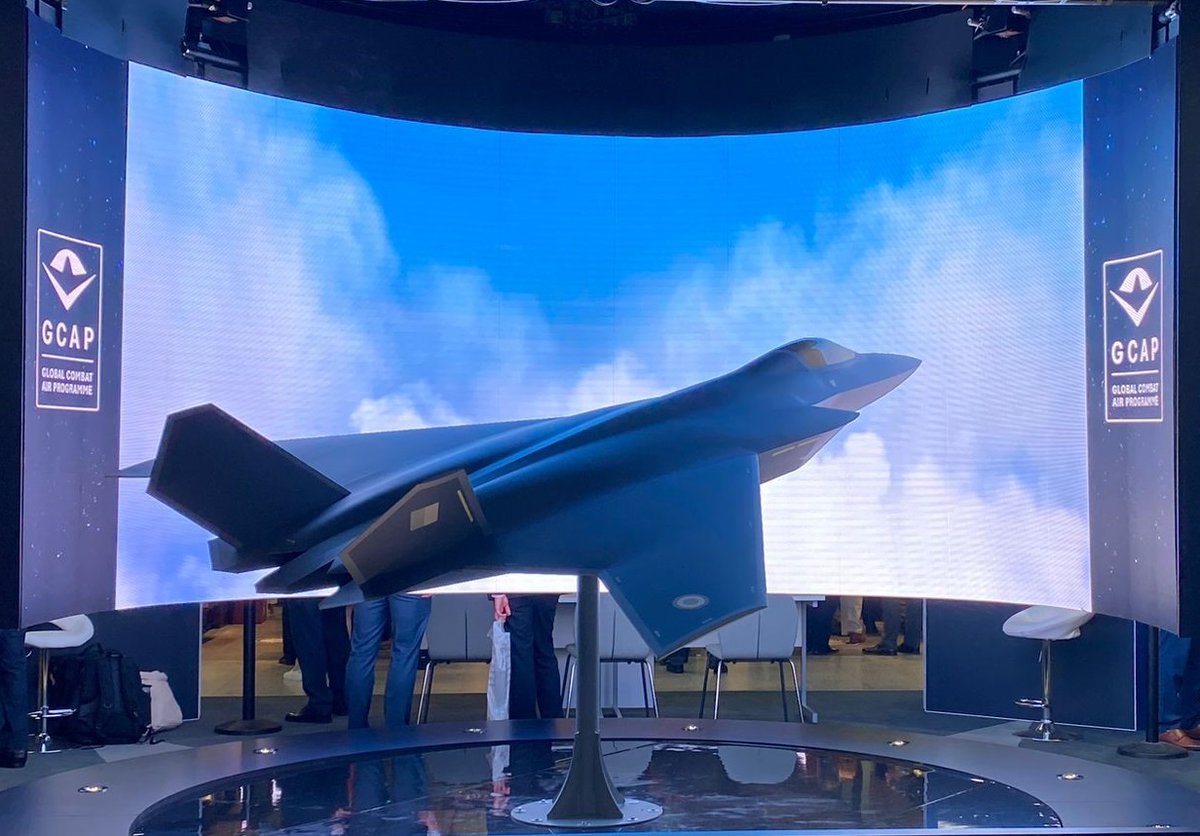The national defence industry leaders on the Global Combat Air Programme (GCAP) – Leonardo (Italy), Mitsubishi Heavy Industries (Japan) and BAE Systems (UK) – have warmly welcomed the signing of the Convention on the Establishment of the “Global Combat Air Programme – GCAP International Government Organisation (the GIGO)” by their respective governments. Ministers from Italy, Japan and UK signed the treaty, which marks an important agreement in the shared design and development of a next generation fighter aircraft by 2035. The agreement, signed just 12 months since the formation of the GCAP programme, reinforces its momentum and the strong trilateral cooperation amongst the partners.
“We welcome the agreement signed by the governments of Italy, Japan and the UK today, and the continued progress with our industrial partners to advance the future joint business construct that will enable us to deliver the next generation combat aircraft. We’re proud to represent the UK on this exciting and forward-leaning partnership, which will deliver a crucial and affordable defence capability and help to maintain our sovereign combat air skills in the UK,” Herman Claesen, Managing Director, Future Combat Air Systems, BAE Systems’ Air sector said.
“We welcome the announcement made by our governments today and we are proud to be part of the GCAP programme along with our partners. GCAP, which will see the development of an innovative next generation core platform underpinned by advanced technology, is charting a transformational new approach to international industrial collaboration. Through its ambition, the programme will maintain the competitiveness of our industries at an international level,” Guglielmo Maviglia, Director GCAP programme, Leonardo said.

“We would like to very much welcome the signing of the treaty by the governments of Italy, the UK and Japan. In addition, following the conclusion of this treaty, we would like to work even more closely with our partners in Italy and the UK to promote GCAP. We will also work to ensure that GCAP contributes to strengthening Japan’s defence capabilities,”Hitoshi Shiraishi, Senior Fellow, GCAP, Mitsubishi Heavy Industries said.
Discussions on the future joint industrial construct to deliver GCAP are continuing, with representatives from Leonardo, Mitsubishi Heavy Industries and BAE Systems meeting recently in Tokyo. In September this year, the industry partners announced a Collaboration Agreement to support ongoing discussions on long-term working arrangements and maturity of the concept and capability requirements for the next generation combat aircraft. Today’s GCAP announcement also confirmed the joint GCAP government headquarters will be hosted in the UK and the first CEO will come from Japan. In addition, the future business construct will also be headquartered in the UK and the first leader will be from Italy. GCAP is a hugely significant programme for the security, political and economic prosperity for Italy, Japan and UK and through effective knowledge and technology transfer will help to evolve and deliver important sovereign combat air capability in each nation for generations to come. Today, there are around 9,000 people working on GCAP worldwide and more than 1,000 suppliers across the partner nations.















